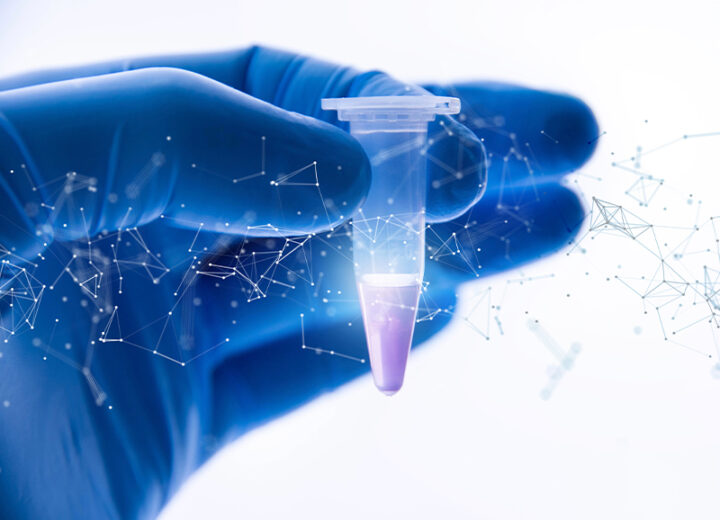15 October 2024
Recombinant enzymes vs native enzymes

In the world of life sciences, enzymes play a vital role in driving the biochemical reactions that power everything from gene sequencing to mRNA production. Choosing the right type of enzyme—i.e. recombinant enzymes vs native enzymes—is critical for ensuring the success of research and industrial applications.
In this blog, we’ll explore the key differences between recombinant enzymes and native enzymes, focusing on factors like consistency, scalability, and cost-effectiveness. We’ll also dive into how Cocoon Bioscience’s insect-based bioreactor system offers a superior solution to traditional enzyme production challenges.
What are native enzymes?
Native enzymes are proteins found naturally in living organisms, where they perform a variety of biological functions. In research and industry, these enzymes are typically extracted from tissues, plants, or microbial sources. For example, enzymes like DNA polymerases are extracted from specific bacteria.
Once harvested, native enzymes are purified and used for various applications. While these enzymes can work effectively in laboratory settings, they can be unreliable. Researchers cannot be sure each batch will exhibit the same qualities.
What are recombinant enzymes?
In comparison, recombinant enzymes are genetically engineered. Scientists use an expression system to introduce the gene for the target protein into a host organism, such as bacteria, yeast, or insect cells. These genes can be customized to create specialty enzymes or specific traits like improved activity.
The host organism then produces the enzyme. Just like native enzymes, these are then harvested, purified, and applied. Read more: The future of recombinant enzymes in life sciences
Read more: The future of recombinant enzymes in life sciences
Recombinant enzymes vs native enzymes: the key differences
Selecting the right enzymes can make all the difference in the success of an experiment or production process. Let’s explore the most critical factors researchers consider and how recombinant and native enzymes compare.
Consistency and reliability
For researchers, consistency is crucial. Whether working on gene sequencing, mRNA production, or drug development, results need to be reproducible.
Native enzymes often exhibit batch-to-batch variability. This is due to several factors, including the conditions in which the organism was grown and the efficiency of the extraction process.
Recombinant enzymes, however, offer much greater reliability. Since they are produced through controlled genetic manipulation, they exhibit minimal variability between batches.
This level of consistency is key in high-precision fields like genetic research, where small changes in enzyme performance can significantly impact results. With recombinant enzymes, researchers can expect not just consistent qualities, but the specific qualities they require. Ultimately, this leads to more accurate outcomes.
READ MORE: The role of an enzyme manufacturer in optimizing enzyme research
Purity and activity levels
In many life sciences applications, the purity and activity of enzymes are critical for success.
While native enzymes can be effective, they often require extensive purification. Even after purification, there’s always the risk of residual impurities or inconsistent activity levels, which can affect experimental accuracy. They often can’t reach a high enough quality to be used for life sciences.
Recombinant enzymes, however, can be engineered to meet specific purity and activity requirements from the beginning. By controlling the expression system and host organism, researchers can produce highly pure and active enzymes. Plus, they’ll work exactly as expected. This minimizes the need for post-production purification, saving both time and resources.
Scalability and supply
As research progresses from the lab to industrial-scale applications, the demand for enzymes increases.
Native enzymes, being dependent on natural sources, aren’t very scalable. Harvesting large quantities of enzymes from naturally occurring plants, animals, or microbes can be both time-consuming and resource intensive. Moreover, fluctuations in supply due to environmental factors can cause delays or shortages in enzyme availability.
In contrast, recombinant enzymes are as scalable as the production facilities. Since they are produced in host organisms like bacteria or insect cells, enzyme production can be scaled up with ease.
This makes recombinant enzymes ideal for large-scale research and industrial applications, where consistent supply and high volumes are critical.
Cost-effectiveness
The production of native enzymes can be expensive. And as the demand for enzymes increases, so does the cost, particularly if the natural sources are scarce or difficult to cultivate.
Recombinant enzymes typically offer a more cost-effective solution. The controlled production methods often produce high yields without extensive purification which reduces costs overall. Additionally, the scalability of recombinant enzyme production means that larger batches can be produced at a lower cost.
Solving common enzyme production challenges
Cocoon Bioscience offers an innovative approach that addresses many of the common challenges associated with native enzyme sourcing. By using insects in their chrysalis state as natural bioreactors, Cocoon is able to produce custom enzymes at high levels of yield and purity.
- Overcoming variability: Cocoon rears insects in a controlled environment to ensure consistency. Plus, the automated expression system improves reliability in production compared to native enzyme methods.
- Scalable production: whether for small-scale research or large industrial applications, Cocoon’s process is easy to scale up linearly. By leveraging the natural efficiency of insects as bioreactors, Cocoon can ramp up enzyme production without a proportional increase in cost.
- Cost-effective: Cocoon’s approach is low-cost throughout the process. Using insects cuts out the use of expensive and energy-intensive bioreactors. Plus, better yield and expression rates means your money goes further.
Why choose recombinant enzymes for your research?
In the debate of recombinant enzymes vs native enzymes, recombinant enzymes clearly offer superior benefits in terms of consistency, scalability, and cost-effectiveness. For researchers working in fields like mRNA production, gene sequencing, or cell culture, these factors are essential for success.
Cocoon’s cutting-edge approach meets these needs. Plus, our production method is more sustainable and effective than traditional approaches. Discover more about our enzyme development offering and how we’re helping people like you innovate.


